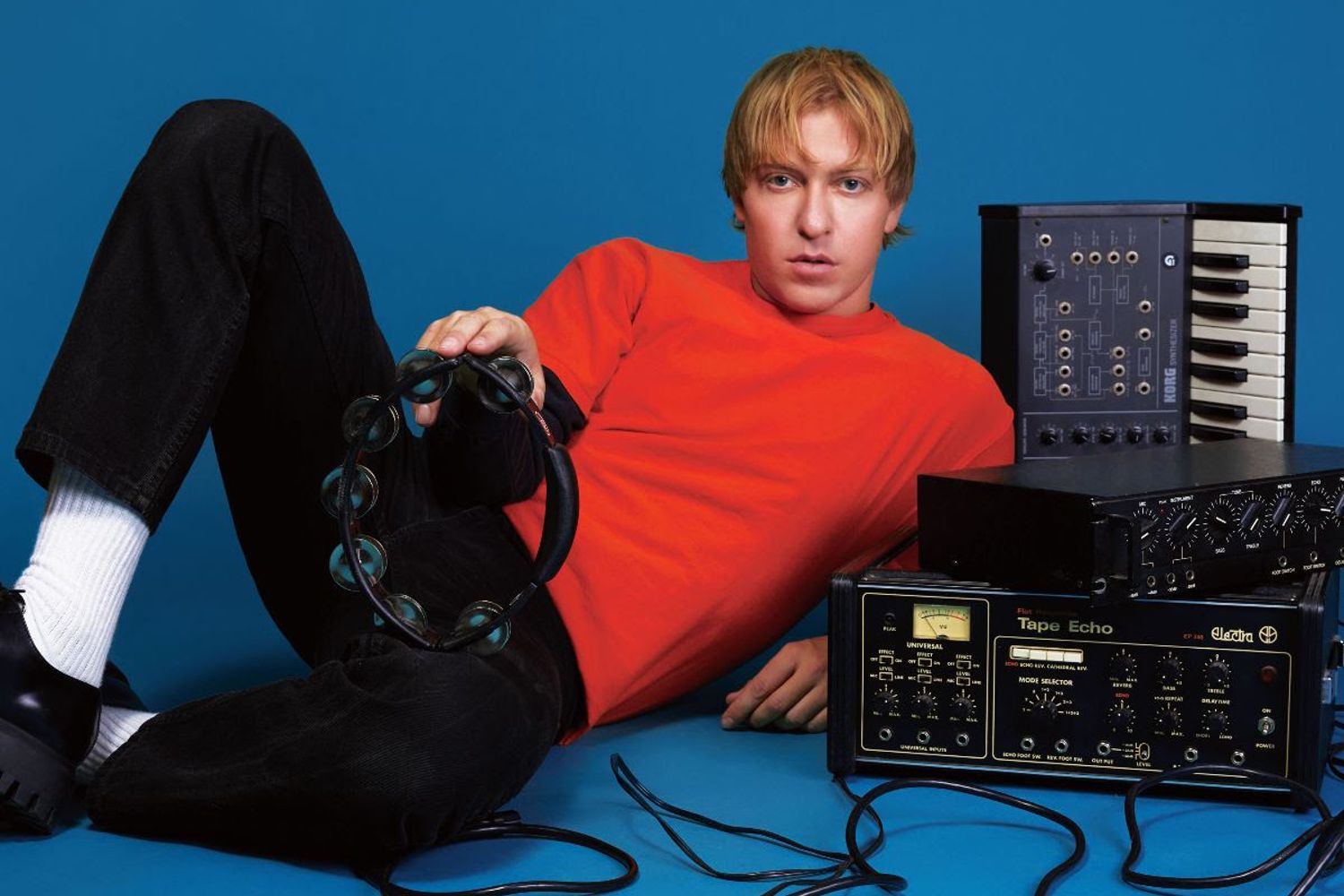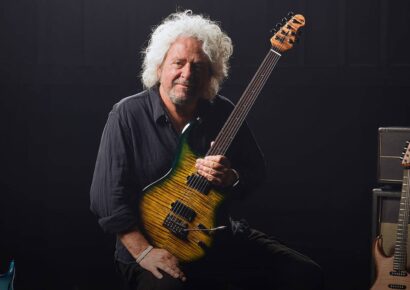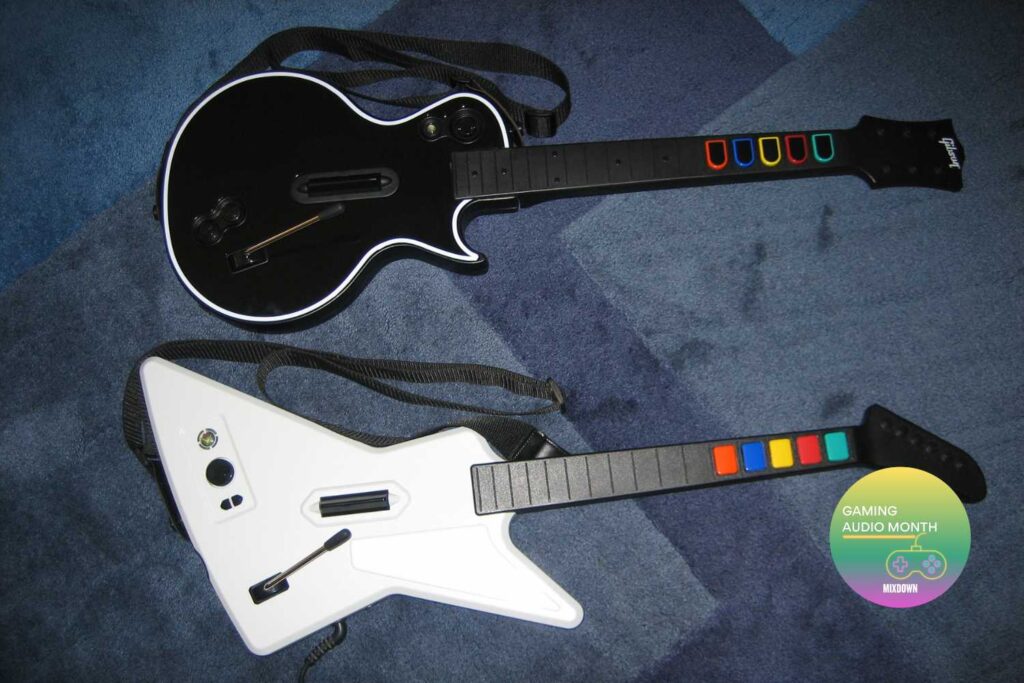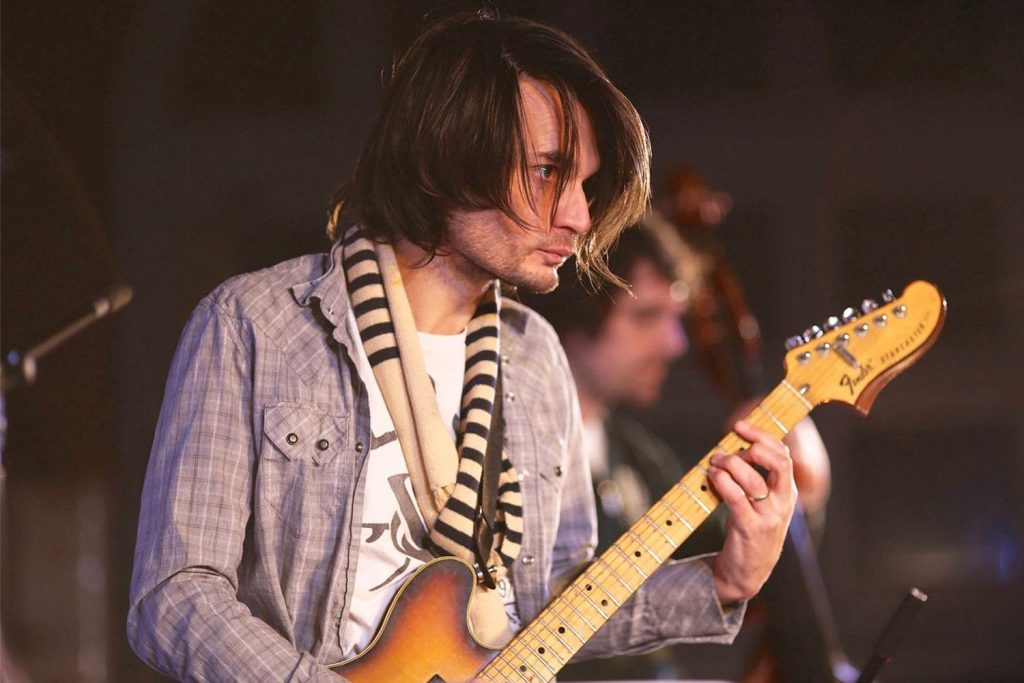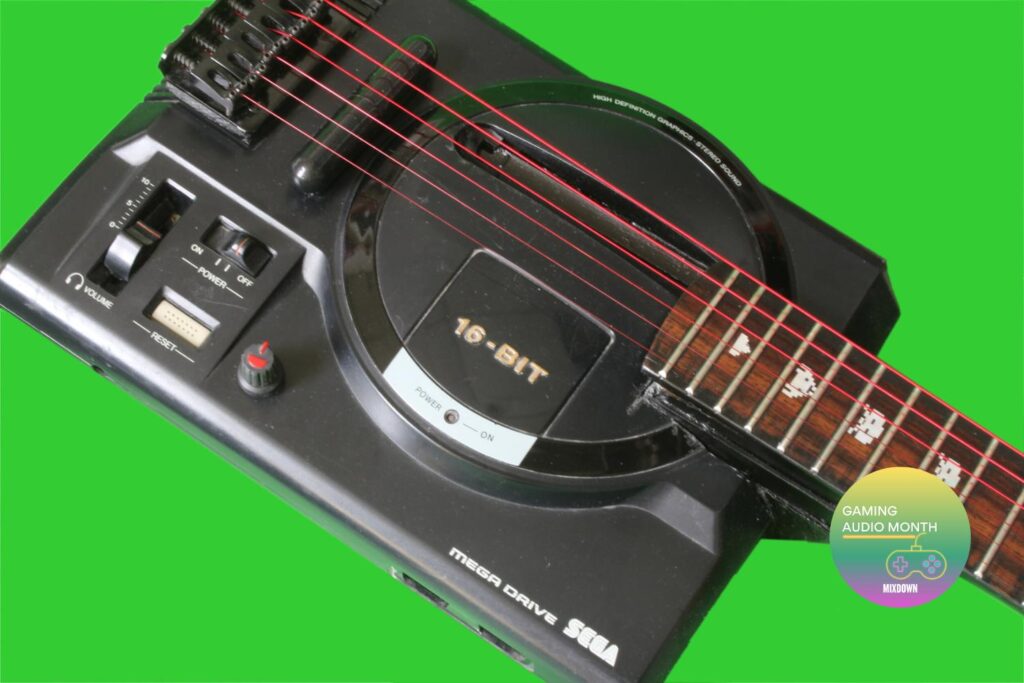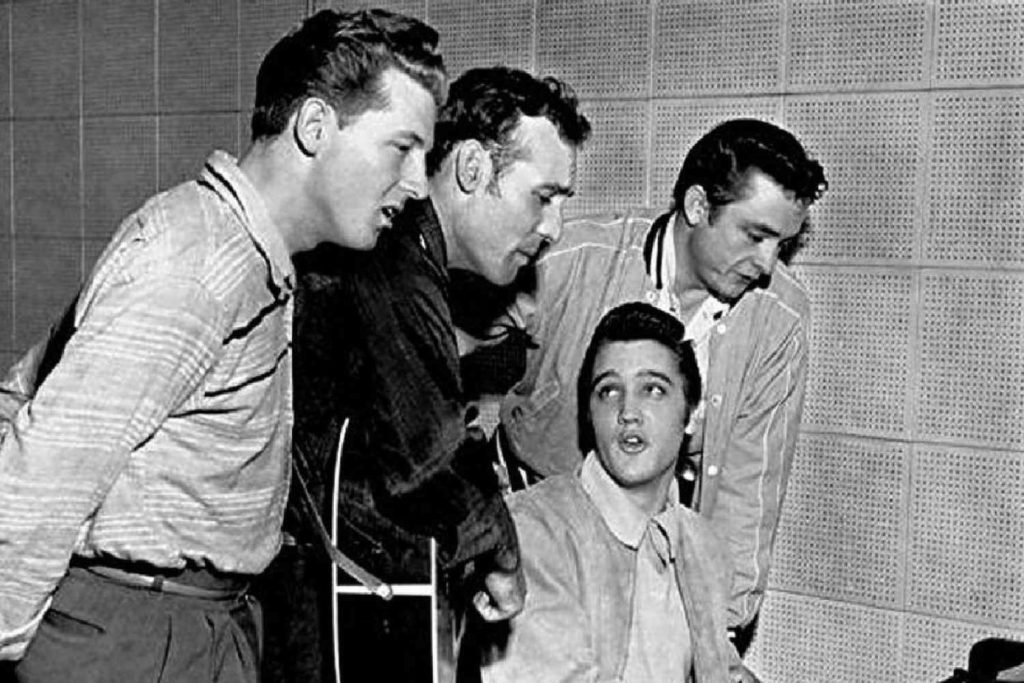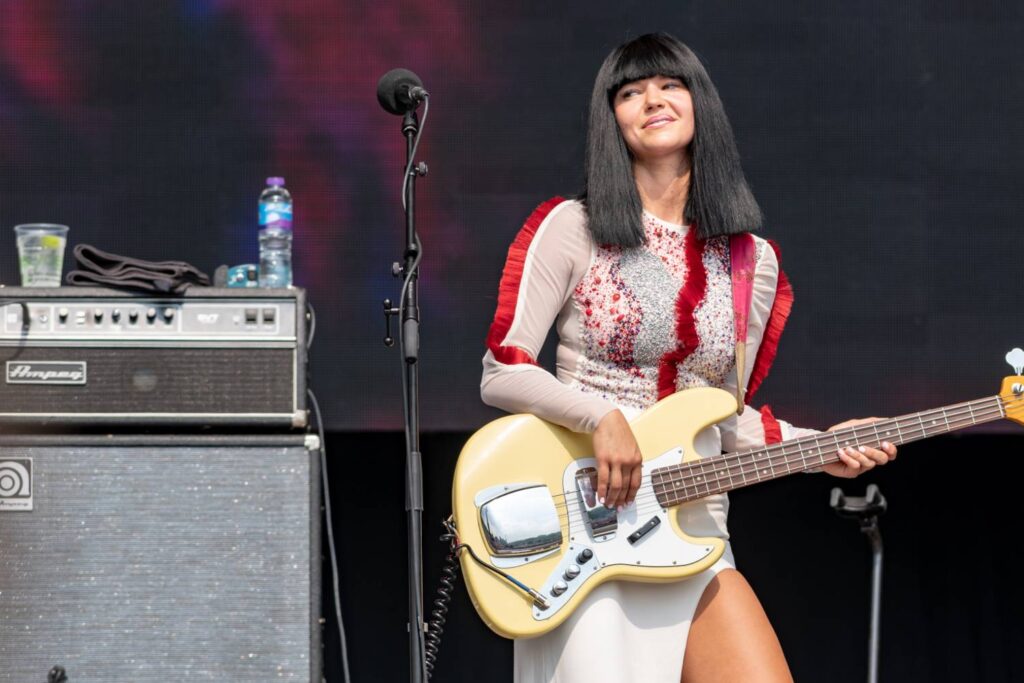Mixdown sits down with The Drums' Jonny Pierce over Zoom to chat about his astounding new record 'Jonny'.
From the world’s introduction to The Drums over a decade ago, in the bright-eyed, bowl-cutted halcyon days of 2010s indie, there has always been something that set Jonny Pierce’s brand of insistently danceable, ‘80s influenced jangle rock apart from contemporaries that play with similar sonics – that is, a tremendous amount of vulnerability and heart. You’d be hard pressed to find another line in a pop song that so succinctly captures the warring senses of inadequacy and yearning that define young love, than in the refrain of 2011’s underground mega hit “Money”: I want to buy you something, but I don’t have any money.
Read up on all the latest features and columns here.
When I sit down to chat with Jonny Pierce over Zoom to chat about his astounding new record Jonny, the first thing I mention is its sonic similarity to Portamento – the 2011 album of which “Money” was a lead single; forgoing the jagged synthesizers of 2019’s Brutalism in favour of the guitar/bass forward arrangements and eager tempos that first brought the band cultural and critical acclaim. When asked if he sees the record as a return to form of sorts, Jonny tells me he can certainly understand the comparison.
“It’s funny you say that- I mean, it makes a lot of sense to me, because I’ve been doing a lot of press leading up to the album release. And something that keeps coming up, is when I look back at all the releases that I’ve put out, the two that I feel I was in the space, in what I call my heart space, where I was really singing from my absolute centre, it was Portamento and this new album Jonny, I think both of them were kind of revolutionary, for me as a songwriter.”
“And certainly, also, sonically, you know, I think, when I’m in a place of pain, or, you know, I almost envision myself deep, deep down in this cave, and I’m crying out. And I think, you know, it’s the sound of my crying out for belonging, and for love, and for connection. That cry is kind of echoing. And I think that’s why these two records have, you know, the sort of like, reverberated swirling, kind of energy to them. That’s always a visual I have myself when I’m in this- I’m in that kind of writing mode.”
I mention to Jonny that thematically, these records also feel like two sides of a self reflective coin; as though the narrative voice of Portamento’s cries into the abyss are being answered by Jonny’s more nurturing present-day self.
“A big difference between Portamento and this album is that in Portamento, I was sort of crying out from a space of chaos, and just kind of feeling utterly lost and disconnected from myself. And so there was a lot about longing and being sad and depressed and confused.
“With the new album, Johnny, there’s those themes, those themes show up again, but it’s from a place of understanding. It’s from a place of having done real work, and really taking time to explore what has happened to me, and like what that means to me now, and what that might mean for me in the future.
“I call this album like my time travel album, it’s almost like going into a time machine and going back. And, you know, putting my hand on the younger version of me, who didn’t understand, who was really scared, the little boy who wasn’t loved as a child, and saying, ‘hey, you can say how you feel now, like, I’ve got you. And so you’re allowed to express your feelings and, and express your pain’. And I think in doing that, it’s not only healing the little boy Jonny, but it’s also healing the modern me, because he is me, you know.”
Having recorded the LP in a remote cabin in 2020, a time at which he had no choice but to release the workhorse pragmatism adopted through previous album cycles and really slow down, Jonny found that in the silence, past selves emerged and pleaded to be committed to track.
“For the first couple of months, it was pretty scary, because I had learned as a child to just survive, and to survive meant to just go go go, work really hard, never stop, never rest. And that became my great escape.
“So when that all kind of stopped, and I couldn’t go on tour, and we weren’t even sure if I should make an album. I just kind of found myself in this stillness that had never been possible before. And different parts of me just started to emerge. And some of those parts were really scary.
“There’s 16 songs on the album, and each one of them feels like a different stage of my life, like a different Johnny from a different stage. And so, every song is kind of, it’s an opportunity for one of them to, to express how they’re feeling. And there’s a couple of them that are more modern Jonny, like, there’s a song called “Little Jonny”, that is much more about what I’m experiencing now, which is the little boy in pain, but the lyrics on that song are me actually kind of transforming into a motherly energy.”
Circling back to the slow, meditative creative process that shaped this album, I ask Jonny whether he thinks that his career-long tendency to work hands-on in the studio, helming his production, has shaped much of his output’s intensely personal, diaristic form.
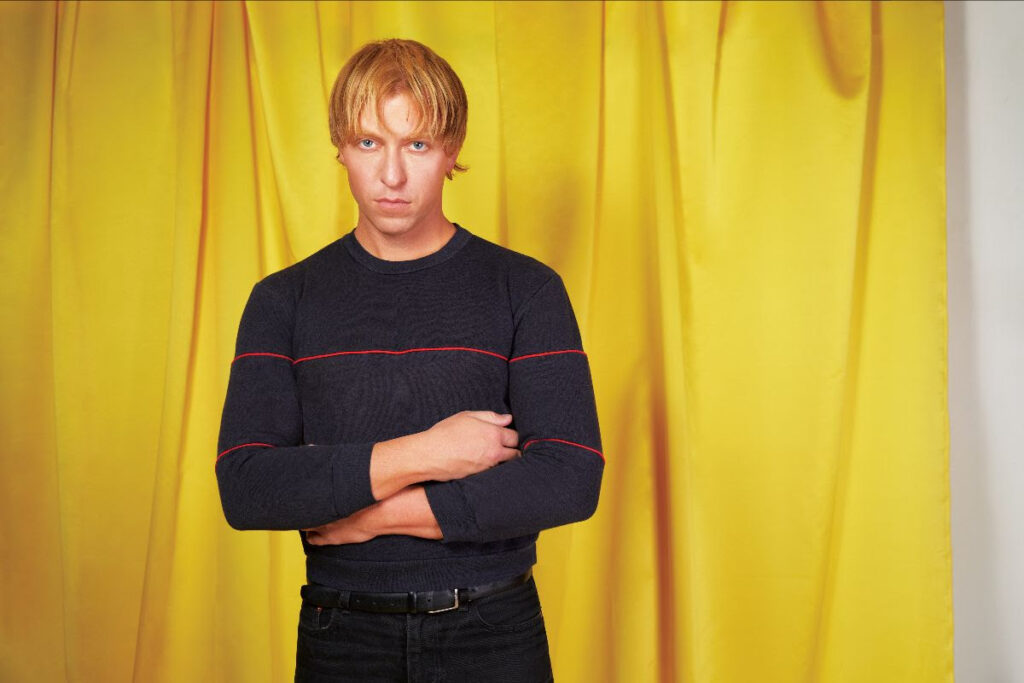
Photo Credit: Qiao Meng
“I think, from a very young age, I’ve had an aversion to authority, and like, doing things the way that you’re supposed to do them, right, I think that comes from having a pastor as a father, and seeing him kind of rule and reign over a congregation in upstate New York and seeing how harmful that was. So I think there’s something in me that’s like, ‘I want to do things the opposite of how everyone else does it’, like, I’m not going to follow, I’m going to lead myself, right. So I think that’s from the very beginning. And it’s so I’ve always kind of just done things my way. There’s also a part of me that’s quite rebellious. And for good reason, right? If I had gone along with what I was taught was the way to be, I would be kind of a shell of a human and not honouring who I am, and there wasn’t space for who I was there. So there’s this part of me that’s like, fuck you like, I’m going to do it my way. And I think it bleeds into every area of my life, including record making.
“Now, there’s also a truth that should be told, which is that 90% of musicians that we know are born wealthy, or at least privileged, right, so I was not, I was born very poor. And I remember eating government issued peanut butter and bread… it was sent to our house. And so I struggled in poverty. And I didn’t have the means to go to a big studio and do things the way that everyone else did it. I didn’t have money to pay band members and all that. So my first album I made with a broken guitar that was always out of tune, actually, my first album, like if you kind of sit down and play it and try to play along, you will be out of tune with the album, because the whole thing is just out of tune with itself and with everything else.
“On the first album, to kind of mimic the sound of a bass guitar, we used an electric guitar, we played the lowest notes we could, and I have a Korg, MS-10 mono synth, and I would get the sub bass going on it. And I would play the sub bass tones. And then we blend the kind of pluck you get from the string of the guitar, and then you’d have the low end from the sub bass, you blend them together. And you know, your brain, your brain fills in the rest and it just sounds like a bass guitar.”
Setting the precedent that, of course, we’re generalising, Jonny and I discuss our distaste for the self-serious gear and tech snobbery that can rear its mansplaining head in the music production landscape, agreeing that for certain artists, breaking convention and creating a sense of exploratory play with equipment is integral to their individual ethos and sound.
“A lot of these spaces are run by straight white men, who have straight white men ideas – I think a lot of these engineers and producers are impressed by big, strong, confident sound. And it kind of like, says something about them needing to feel big, strong and confident. And I’m really generalising a little, there are absolutely exceptions. But I have run into this a few times. And so I think my brand of songwriting, and my artist’s heart, are just a little too sweet and sensitive for that, you know, when I was a little boy, I was like a shy little boy who sat at the kitchen table and just coloured with crayons all day, like, you know, there’s something I just don’t connect to.
“It’s not to say there aren’t engineers who really excel at making things sweet and soft. There definitely are. And maybe I’ll work with one of them one day, or a producer. But I think overall my experiences in big, fancy flashy studios with big, fancy flashy producers and engineers. It just feels kind of violent for me.”
Our time almost up, my conversation with Jonny has left me with the deep sense that genuine intention informs every single step of his creative process. Now, with a decade of records under his belt, each of which have allowed him to shed a layer and operate with increasing tenderness towards himself, both as an artist and a human, Jonny tells me what compels him to create now, with such a blistered and beautiful journey already behind him. Funnily enough, it’s the thing that first drew me, and countless others, to his music in the first place.
“With this new record, as I’ve kind of talked about before, there was this new kind of breath and joy and sweetness in the recording process, which I had never known before. I wasn’t on the treadmill of recording, I was taking my good old time, and I was just trusting my own process as it played out before me. And I found myself sort of being cradled in the sweetness and before I knew it, this album was finished. And so moving forward, like if I’m looking ahead and trying to predict what it might feel like, I’m hopeful that working on the next album, I can just bring some more of this beautiful treasure that I’ve found and just scatter it onto the next record. I wouldn’t mind making a few more albums in this space. But we’ll see, life is wild and unpredictable.
“I can tell you this much though, I will commit this, that I will be always writing from my heart.”
Jonny is available to purchase and stream on all good platforms now.
